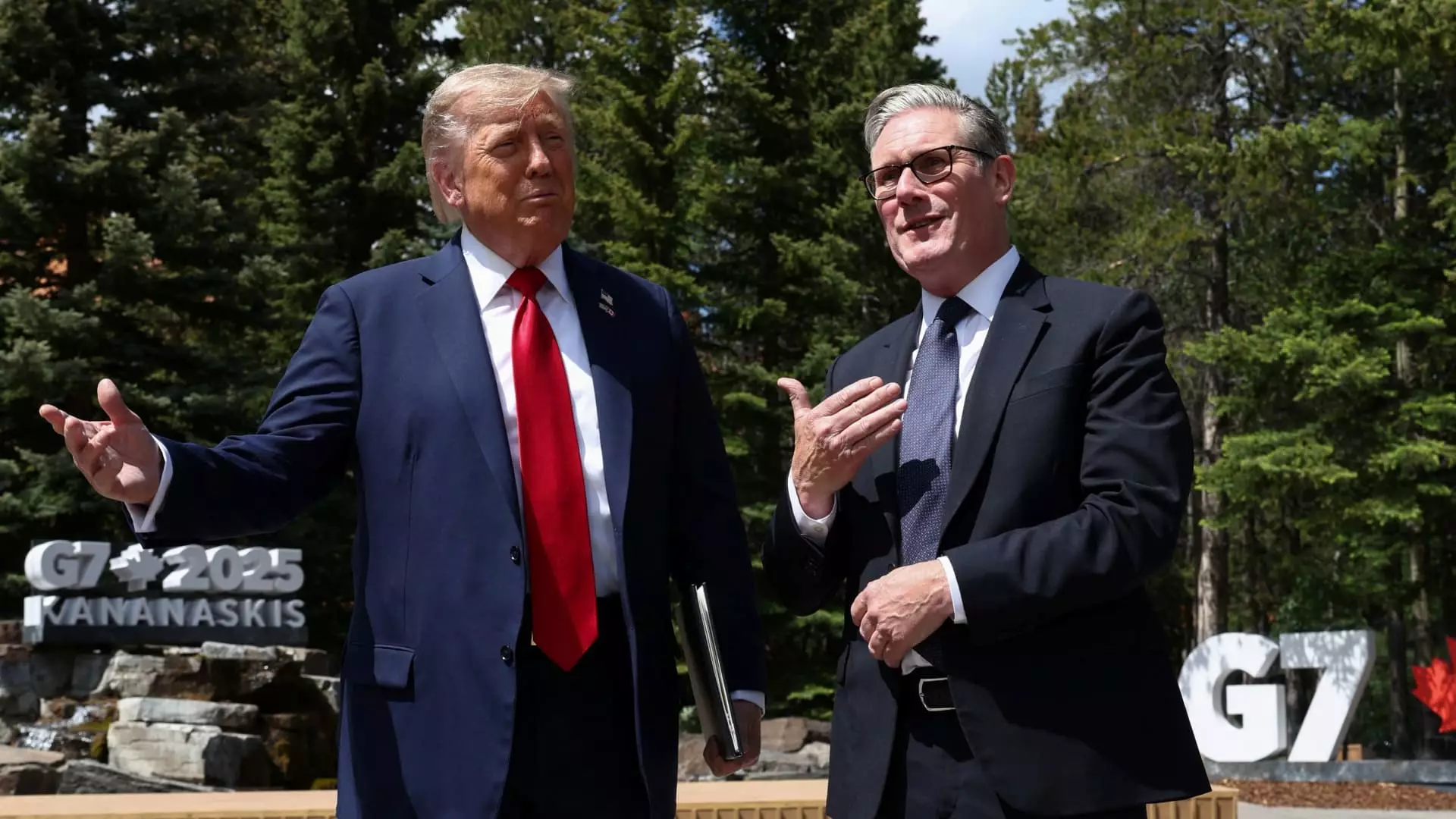The announcement of President Donald Trump’s tariff agreement with British Prime Minister Keir Starmer at the G7 Summit represents a pivotal moment in U.S.-U.K. relations, but it also unveils a precarious and half-baked framework that raises numerous questions. While the deal seems like a diplomatic win, especially for the aerospace and automotive sectors, it glosses over critical challenges that may inadvertently isolate Britain in an increasingly competitive global market. The absence of concrete resolutions surrounding steel and aluminum tariffs is especially troubling, demonstrating a lack of foresight and preparedness from both leaders.
The air of triumph that characterized the announcement—Trump’s proclamation of a “fantastic” relationship with the U.K.—belies the uncertainty lurking just beneath the surface. With the specter of 25% tariffs still hovering over key raw materials, the deal feels more like a Band-Aid on a large wound rather than a comprehensive remedy. Effective trade agreements must be holistic in nature, addressing every critical sector, and this agreement tragically misses the mark by failing to secure essential industries such as pharmaceuticals, putting Britain’s economic future at risk.
The Illusion of Reciprocity
Trump’s insistence on reciprocally favorable tariffs emphasizes the transactional nature that often defines his foreign policy. While offering Britain a 10% tariff on 100,000 car exports sounds appealing, is it truly a favorable arrangement? The 25% tariffs imposed on other countries serve as a constant reminder that America’s choices can be capricious, threatening economies without adequate warning. The façade of reciprocity can easily turn into a web of entanglements, particularly for a country like Britain that already feels like a reluctant partner in a post-Brexit world.
Moreover, the notion that British compliance with U.S. security standards will be the linchpin that prevents punishing tariffs is both naïve and unsettling. This conditionality places British industries in a precarious position where their economic health is at the mercy of an unpredictable American administration. In an age where geopolitical alliances matter more than ever, such dependency could pose serious risks to Britain’s long-term economic health and global standing.
The Sidelining of Key Sectors
Missing from the announcement was any serious mention of the pharmaceutical sector—one of the U.K.’s jewels. The lack of attention to pharmaceuticals cannot be overstated. As countries worldwide race toward becoming leaders in healthcare, the sidelining of this vital industry raises concerns about Britain’s capacity for innovation and its foothold in global markets. Without tangible measures to protect and promote pharmaceuticals in this agreement, it risks falling behind in an arena where competition is not just fierce, but life-altering.
The conversation around agriculture saw some hopeful remarks, with discussions on mutual access to beef exports. However, the insistence on stringent food safety standards for U.S. imports may open another can of worms and create unnecessary friction. The UK’s consumer safety mechanisms have historically prioritized public health, and any concession could undermine this cornerstone of trust that consumers place in British products.
The Illusion of Security
President Trump’s claim that “the U.K. is very well protected” is painfully simplistic. In making such assertions, he overlooks the complexities of modern trade relationships, neglecting the reality that dependence on any single nation—especially one with an unpredictable trade policy—can rapidly turn an advantageous deal into a precarious gambit. If Britain is to thrive, it must establish diversified trade relationships, not merely lean on goodwill from the White House.
The short-sightedness of this agreement raises serious concerns for Britain’s future. By prioritizing immediate gains over sustainable development, both Trump and Starmer seem content to broker deals that, while politically expedient, do little to secure long-term prosperity. Without addressing critical sectors comprehensively and ensuring that emerging trade relationships are equitable, Britain may find itself ensnared in a web of dependency—a dangerous position in an already tumultuous global landscape.


Leave a Reply